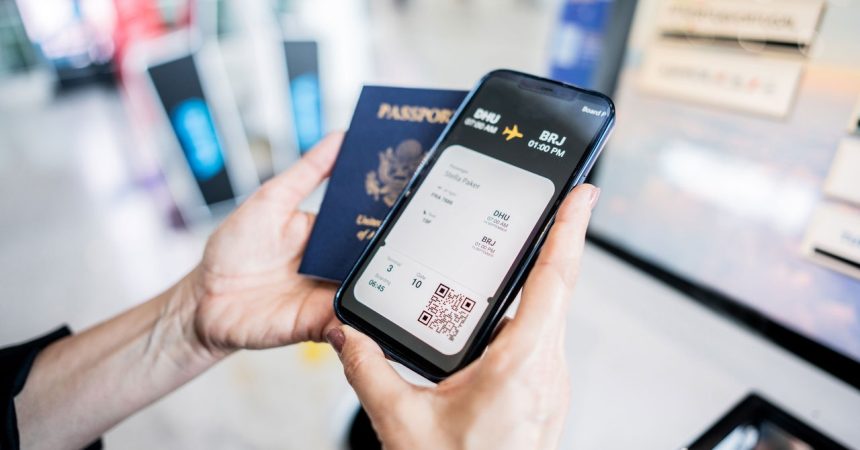The familiar paper passport, a travel essential for over a century, is on the cusp of a significant transformation, potentially becoming obsolete in the near future. While passports were initially standardized after World War I for security purposes, they are now being gradually replaced by digital systems leveraging facial recognition technology and smartphones. This shift aims to expedite travel processes by reducing waiting times and streamlining airport procedures, creating a more seamless experience for passengers. Various countries, including Finland, Canada, the Netherlands, the UAE, the UK, Italy, the US, India, and Singapore, are pioneering this transition through trials and pilot programs, illustrating the global momentum of this change.
The concept of passport-free travel revolves around digitizing the information traditionally stored in a passport’s NFC chip, particularly facial data, and linking it to a traveler’s smartphone. This allows for identity verification through facial recognition cameras at airports, eliminating the need to physically present a passport. Singapore, for example, has already implemented this technology, enabling both residents and foreign visitors to experience passport-less clearance. The European Union is also developing an official travel app to facilitate this digital transition.
The driving forces behind this evolution are improved efficiency and passenger convenience, further accelerated by the Covid-19 pandemic’s push for contactless interactions. By eliminating the need for manual passport checks, airports can significantly reduce processing times and passenger queues, allowing for smoother and faster transit. However, this technological advancement also raises significant privacy concerns.
Despite the potential benefits of passport-free travel, there are legitimate apprehensions regarding data security, surveillance, and the transparency of the employed technologies. Privacy experts warn of potential data breaches and the increased possibility of mass surveillance as facial recognition systems become more prevalent. The lack of transparency regarding how these systems collect, store, and utilize personal data further fuels these concerns. Moreover, the potential for misuse and abuse of this technology raises ethical questions that need careful consideration.
While the various trials and implementations globally differ in their technical infrastructure and specific procedures, they share a common core principle: the digitization of passport information and its linkage to a personal device, primarily a smartphone. This digital passport, coupled with facial recognition technology, allows for swift and automated identity verification at airports. The EU’s initiative to develop a standardized travel app reflects the growing consensus towards a unified approach to digital travel credentials.
The transition to passport-free travel marks a pivotal moment in the history of international travel. While promising increased efficiency and convenience, it also necessitates careful consideration of the potential privacy implications. Balancing the benefits of streamlined travel with the need to protect personal data and privacy will be a crucial challenge as this technology becomes increasingly integrated into our travel experiences. A robust regulatory framework and transparent data handling practices are essential to mitigate these risks and ensure responsible implementation of this transformative technology.



